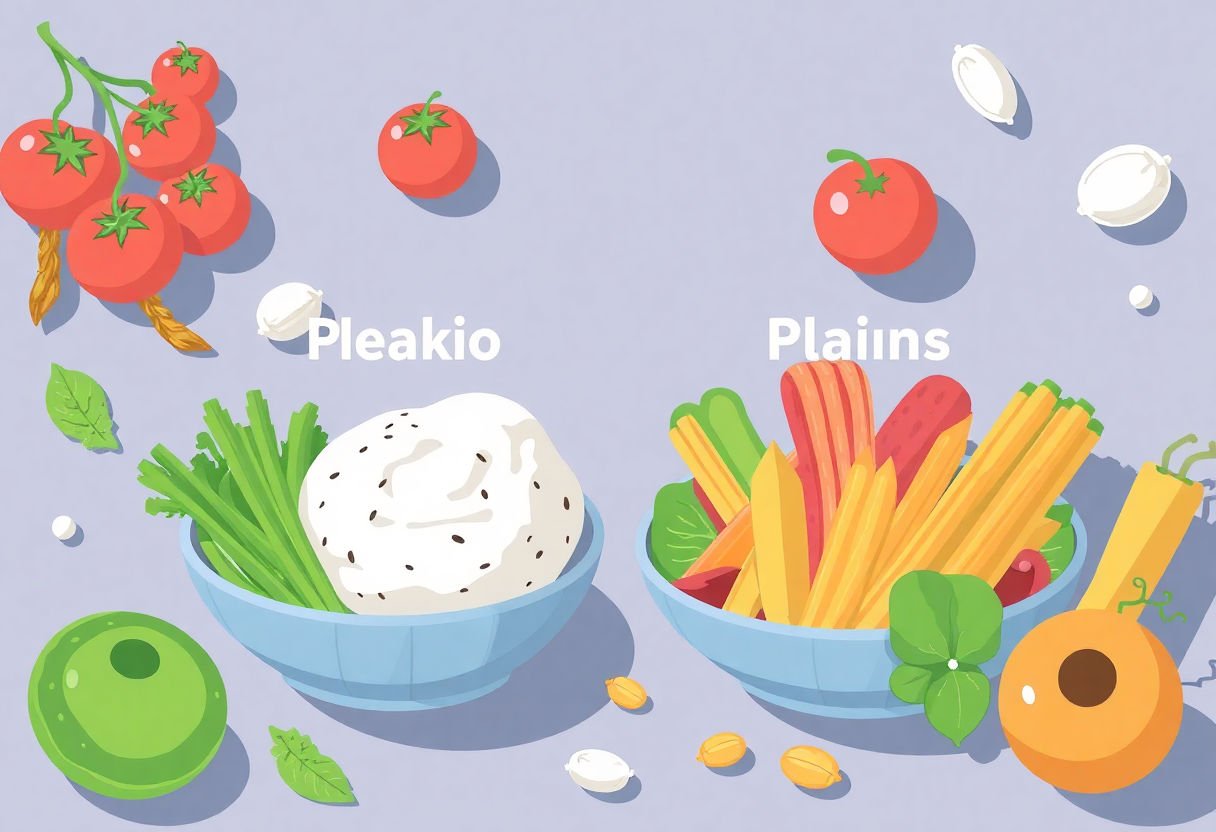Magnesium and potassium are essential minerals that play critical roles in maintaining optimal energy levels and overall health. These nutrients are key in energy production and can significantly affect vitality when deficient. Understanding the impact of magnesium and potassium on fatigue and how they interact with stress management provides valuable insight into maintaining energy throughout the day. Explore the signs of deficiency, discover nutrient-rich food sources, and learn practical dietary tips to ensure adequate intake. Continue reading to uncover how these minerals contribute not only to boosting energy but also to enhancing your well-being.
Key Takeaways
- Magnesium and potassium are essential minerals that significantly contribute to energy production and overall vitality.
- Deficiencies in either mineral can lead to fatigue, muscle weakness, and impaired physical performance.
- Incorporating magnesium and potassium-rich foods, like leafy greens and bananas, can help maintain optimal energy levels.
- These minerals also aid in stress management, which further supports consistent energy and well-being.
- Understanding the signs of deficiency is crucial for timely dietary adjustments to sustain energy and health benefits.
The Importance of Magnesium for Energy
Magnesium is an essential mineral that plays a pivotal role in the body’s ability to produce and sustain energy. It acts as a powerful cofactor in more than 300 enzyme systems that regulate biochemical reactions, including those involved in energy production. One of the most important of these reactions is the synthesis of adenosine triphosphate (ATP), often referred to as the body’s energy currency. ATP is critical for numerous cellular functions, and without sufficient magnesium, the production of ATP decreases, leading to a noticeable decline in energy levels and vitality.
Furthermore, magnesium helps in the maintenance of electrical balances across cell membranes, which is vital in neuromuscular functions. The mineral supports the conversion of food into energy, making it crucial for numerous bodily processes that keep us active and alert.
Signs of Magnesium Deficiency can be subtle initially but may escalate into more pronounced symptoms if left unaddressed. Common signs include fatigue, muscle weakness, cramps, and sometimes even irregular heart rhythms. Persistent deficiency can lead to more severe health issues, highlighting the importance of ensuring adequate magnesium intake.
Recognizing these symptoms early on can prompt dietary adjustments, encouraging the inclusion of magnesium-rich foods such as leafy greens, nuts, seeds, and whole grains. These dietary choices not only prevent deficiency but also promote sustained energy levels, thereby supporting an active and healthy lifestyle. Understanding the integral role of magnesium underscores the need for attention to dietary intake to prevent deficiency-related fatigue and ensure optimal energy production.
Potassium’s Role in Energy Levels
Potassium is a vital mineral responsible for several critical functions within the body, notably in maintaining and boosting energy levels. As an essential electrolyte, it plays a crucial role in cellular function by controlling the balance of fluids and electrolytes. This balance is fundamental in ensuring optimal muscle contractions, nerve signals, and heart function—all pivotal processes in sustaining energy levels and preventing fatigue.
One of the most significant ways potassium contributes to energy levels is through its involvement in the process of converting blood sugar into usable energy. Potassium facilitates the breakdown of carbohydrates into glucose, which is then transported within cells. This process not only ensures a steady supply of energy but also helps stabilize blood sugar levels, preventing the energy dips often associated with fatigue.
Identifying potassium deficiency can significantly aid in maintaining consistent energy levels. Common signs of deficiency include muscle weakness, cramps, and persistent fatigue. These symptoms arise because low potassium levels disrupt the normal interactions between nerves and muscles, affecting overall muscle function and energy production.
Furthermore, a deficiency in potassium may lead to irregular heartbeat and elevated blood pressure, both of which can severely impact energy efficiency and overall physical performance. Ensuring adequate potassium intake through diet—such as incorporating bananas, sweet potatoes, and spinach—can help avert these issues, promoting sustained energy and overall well-being.
Top Magnesium-Rich Foods

Leafy greens like spinach are powerhouse sources of magnesium, providing an excellent boost to your diet. Just one cup of cooked spinach can offer up to 157 mg of magnesium, amounting to about 39% of the daily recommended intake. Nuts and seeds are also rich in magnesium; almonds, for instance, provide approximately 80 mg of magnesium per ounce, making them a great snack choice for energy.
Another superb source of magnesium is whole grains. Quinoa and brown rice not only provide fiber and essential minerals but also contribute significantly to your daily magnesium intake. A single cup of cooked quinoa offers about 118 mg of this vital mineral.
Incorporating legumes, such as black beans or chickpeas, into your meals is another delicious way to enhance magnesium intake. A cup of cooked black beans delivers around 120 mg of magnesium, boosting both energy levels and nutritional value.
Avocados are not only loaded with healthy fats but also provide a significant magnesium content. A medium-sized avocado contains roughly 58 mg, making it a versatile and tasty option for salads and sandwiches.
Additionally, opting for dark chocolate with at least 70% cocoa is an indulgent yet beneficial choice for increasing magnesium intake. A 1 oz serving not only satisfies sweet cravings but also adds 64 mg of magnesium to your diet.
Thus, integrating these magnesium-rich foods into your daily nutrition can significantly contribute to enhanced energy levels and overall well-being.
Top Potassium-Rich Foods

Potassium is a crucial mineral that plays a vital role in maintaining energy levels and overall health. Incorporating potassium-rich foods into your diet can help sustain energy, prevent fatigue, and support bodily functions. Here is an overview of some top potassium-rich foods that can enhance your energy and well-being:
-
Bananas: Known as a convenient source of energy, bananas are rich in potassium, providing about 422 mg per medium-sized fruit. They are perfect for an on-the-go snack.
-
Sweet Potatoes: A versatile and delicious option, sweet potatoes offer approximately 448 mg of potassium per medium-sized potato. They also contain healthy carbohydrates, making them a satisfying side dish.
-
Spinach: This leafy green not only supplies iron and magnesium but also a significant amount of potassium. A cup of cooked spinach provides roughly 839 mg, making it a powerhouse for energy support.
-
Avocados: Often celebrated for their healthy fats, avocados also provide a good potassium boost, with one medium avocado containing around 975 mg. They are excellent in salads, sandwiches, or smoothies.
-
Yogurt: Particularly plain, non-fat yogurt is a great source, with a single cup providing about 573 mg. It makes a nourishing breakfast or snack paired with fruit.
-
Salmon: This nutritious fish offers about 534 mg per 3-ounce serving and is rich in omega-3 fatty acids, promoting both heart health and sustained energy levels.
These foods are not only rich in potassium but also contribute other essential nutrients that support a healthy lifestyle. Including them in your daily meals can play a pivotal role in boosting your energy naturally.
How to Incorporate Magnesium and Potassium Into Your Diet

Incorporating magnesium and potassium into your diet can significantly boost your energy levels and support overall health. Here are practical ways to seamlessly add these essential minerals to your meals and snacks:
-
Prioritize Whole Foods: Begin by including more whole foods that are naturally rich in magnesium and potassium. Leafy greens such as spinach and kale, along with nuts like almonds and cashews, provide a bounty of magnesium. To increase potassium intake, focus on foods like bananas, sweet potatoes, and avocados.
-
Enhance Your Breakfast: Start your day with a nutrient-rich breakfast by adding oatmeal topped with banana slices and a sprinkle of flaxseeds or walnuts. This not only boosts your magnesium and potassium intake but also sets a healthy tone for the day.
-
Snack Wisely: Choose snacks that are both satisfying and mineral-rich. A handful of mixed nuts or a smoothie made from spinach, banana, and almond milk can serve as an excellent pick-me-up.
-
Experiment with Salads: Create vibrant salads with a mix of magnesium-rich greens, such as Swiss chard, and potassium-packed ingredients like cherry tomatoes and lentils. Use a dressing of olive oil and lemon juice for added flavor.
-
Incorporate Whole Grains: Whole grains such as brown rice and quinoa are excellent sources of magnesium. Prepare them as a side dish to accompany your meals, ensuring a nutritious and balanced diet.
By consciously choosing foods high in these essential minerals, you cultivate a more vibrant and energetic lifestyle. Remember, balance and variety are key in maintaining optimal health.
The Relationship Between Magnesium, Potassium, and Stress

Magnesium and potassium play pivotal roles in managing stress levels, a crucial factor potentially affecting your energy. When stress intensifies, the body’s demand for these minerals increases, potentially depleting their reserves.
Magnesium supports the body in regulating the stress response. It contributes to the function of the hypothalamus-pituitary-adrenal (HPA) axis, which controls the release of cortisol, the primary stress hormone. Studies have shown that adequate magnesium levels can support the modulation of the stress response, helping in maintaining a state of calmness and equilibrium, essential for preserving energy levels. Conversely, stress-induced magnesium depletion can result in heightened anxiety and fatigue.
Potassium, on the other hand, influences the nervous system and muscle function. It aids in ensuring that the heart and muscles operate efficiently, even under stress. Potassium helps to moderate the negative effects of cortisol—acting as a protective barrier during stressful times. Maintaining sufficient potassium levels can help in reducing the experience of stress-induced fatigue, contributing to sustained energy.
Furthermore, these minerals have a symbiotic relationship—magnesium assists in the efficient use of potassium within the body. This partnership is crucial because while magnesium helps calm the nervous system, potassium supports muscle relaxation, both of which are vital in stress management.
Balancing magnesium and potassium intake can therefore help mitigate stress effects, enhancing overall energy levels and promoting well-being.
Conclusion
In conclusion, both magnesium and potassium play pivotal roles in maintaining and boosting energy levels. Their contributions to cellular functions underscore their importance in fighting fatigue and supporting overall vitality. The signs of deficiency in these minerals highlight the need for awareness and nutritional diligence. As we understand the synergy between these nutrients and stress management, incorporating magnesium and potassium-rich foods into our diet emerges as a practical solution. Moving forward, cultivating mindful eating habits can empower individuals to harness these minerals’ benefits, fostering a future of enhanced energy and well-being.
Frequently Asked Questions
How do magnesium and potassium increase energy levels?
Magnesium and potassium both play pivotal roles in energy metabolism. Magnesium is involved in converting food into energy, while potassium helps maintain robust cellular function and nerve transmission, both essential for sustained vitality.
Can I consume too much magnesium and potassium?
Yes, excessive consumption of these minerals can lead to adverse effects. Too much magnesium may cause digestive issues, while high potassium levels can lead to heart-related problems. It is crucial to adhere to recommended daily allowances and consult a healthcare provider if needed.
What are some natural food sources of magnesium and potassium?
Magnesium can be found in foods like spinach, almonds, and black beans, whereas potassium is abundant in bananas, sweet potatoes, and oranges. Incorporating these foods into your diet can help sustain optimal energy levels naturally.
How can I identify if I have a magnesium or potassium deficiency?
Common signs of magnesium deficiency include muscle cramps and fatigue, while potassium deficiency might manifest as weakness or irregular heartbeats. If you suspect a deficiency, a healthcare professional can perform appropriate tests to confirm.
Are magnesium and potassium supplements necessary to boost energy?
Supplements can be beneficial if dietary intake is insufficient, but they should not replace a balanced diet. It is advisable to get these nutrients from natural food sources whenever possible, and seek advice from a healthcare provider before starting any supplements.
